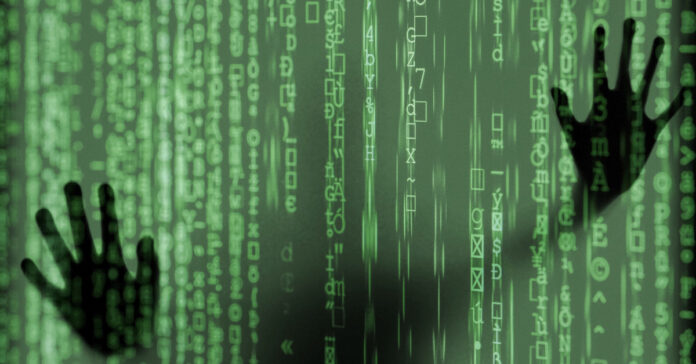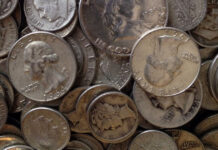On January 19, Survival Blog published a post by its founder James Wesley, Rawles titled How to Prepare to Counter Sovereign Cryptocurrencies. I agree with many of his points, including the idea a central bank digital currency (CBDC) will only succeed if the government ends the use of cash. The reason I think they will ban cash is that the adoption of a CBDC will be low as long as there is an alternative.
His post motivated me to write this one. I am not responding to his post as much as I am adding my perspective and giving a broader explanation of why CBDCs are bad, how they give the government control, and what you can do. Again, there is some overlap and some differences. I recommend you read both posts.
Spoiler alert: If there is anything you want to buy and keep private, buy it with cash before the implementation of a national digital currency.
Tracking Spending
When the United States prints a $20 bill and it ends up in your hands, the government probably doesn’t know you have it. They also won’t know how you spent that money, if you save it, or if you give it to someone else. When you use cash, it is difficult to track your spending, although if you are a big crime figure, the government might do so.
With a central bank digital currency, the issuer, and possibly others, will know every single transaction because it will store those transactions on the blockchain, a kind of permanent digital record. There may be hackers and data brokers who can also access this data, learning how you spend every penny.
In time, I expect there may be ways around this invasion of your privacy. For example, just like you can get a burner phone, you will probably be able to get the equivalent of a burner wallet. You could have one digital wallet for your personal use, one provided by your employer for business use, and an anonymous “sin” wallet for when you buy alcohol, ammo, porn, or anything else you don’t want your spouse or the government to know about. Most people won’t bother. Think, for example, how many people have burner phones in addition to their regular line? Not that many. It takes effort, and most Americans either don’t care or are too lazy.
It’s all About Control
When you take your $20 bill to the store to buy beer, the government can’t stop you, as long as you are old enough to legally buy alcohol. With a CBDC, the government could prohibit the use of their currency to buy something they don’t approve of, whether that is a gas stove or a bottle of Jim Beam. This control will also make it harder for marijuana dispensaries, sex workers, and other legal, but frowned upon, and illegal enterprises to conduct business.
The government will also be able to enforce a sales tax. Every time money leaves your wallet for a retail purchase, the government could tack on sales tax and take a little extra.
Likewise, the government can’t stop you from putting your $20 bill in an envelope in your dresser and not spending it for two years. With a CBDC, your money could have an expiration date. The issuer could say you must spend it in two months or it will expire. And an expired CBDC won’t be like a can of soup where it is still good past the expiration date. When a CBDC expires, poof, it will vanish from your wallet.
After a CBDC is adopted and in wide use, I expect the government will eliminate credit cards, banks, PayPal, and similar services. They will tell you it isn’t necessary because your digital wallet loaded with CBDC replaces all of them. The real reason is the government wants more visibility and control over your spending. But don’t worry, it will be “for your own good.”
Incentives and Disincentives
The government uses changes to the tax code to encourage certain behavior, such as buying electric vehicles and homeownership. These takes time to kick in because Congress must pass laws to create tax changes. With a CBDC, however, an incentive could go into effect with the click of a mouse. Imagine being told that every time you use a public EV charging station, the $100 in your digital wallet will buy $120 worth of recharging, and every time you buy gas with your wallet, that $100 will only buy $80 worth of gas. A CBDC gives the issuer the power to do that.
If a government wanted to encourage people to have more kids, a country like China could make their CBDC yuans unusable to buy contraceptives, the morning-after pill, or an abortion.
Because a CBDC currency is subject to tracking and manipulation by the issuing central bank, it will allow the government to track your purchases and gain insight into your behavior. It will tell as much or more about you than your search history and will be used to investigate and prosecute crimes.
Imagine, for example, if after the Boston Marathon bombing, the government could have immediate access to everyone who had bought a pressure cooker. Think how many innocent people the police would have questioned if they had this data.
Playing the Game
After issuing a CBDC, the government will declare you can no longer use cash and give a one-year period in which to turn in your paper money or it will be worthless. If this happens, you should turn in several hundred dollars or more of cash to avoid suspicion. Then you should use the rest of your cash stash to buy barterable tangible goods and gold or silver. If they make gold and silver bullion illegal, I doubt junk silver will be. I think silver dimes and quarters minted before 1965 will be very useful for small transactions people wish to keep private. So useful, in fact, that their value will rise. If you can’t buy coins because of a government restriction, buy gold chains and other jewelry of the highest karat available, such as 18 karats. (24 karat gold is pure gold. 18 karat gold is 75% gold.)
For more information on gold and silver, read Precious Metals for Prepper.
You won’t be able to avoid CBDCs if they become legal tender. Everything you buy will need to be paid for in CBDCs. Gas in your tank, food for your table, your electricity bill, etc. The trick is to not let your CBDCs pile up where they can be confiscated by the government, inflated away, or taxed. Turn them into valuable goods. If you buy high-value tangible goods, you can always barter with them or sell them in the future.
What is a Valuable Good?
How valuable something is depends on how badly someone wants it. This can vary depending on scarcity and how critical the item is. Cigarettes used to be a kind of currency in jail or prison. I’ve heard today it can be ramen or other food from the commissary. You can use anything in a transaction if both parties value it equally. In a dystopian future, canned food could be a good choice because you can always eat it if no one will trade for it.
People always need to eat, but they always want to do things to satisfy their addiction or desires. So while food is a safe choice, alcohol might be an interesting alternative.
While gold and silver are universally recognized as valuable, there may be a time when a five-gallon can of gas is more valuable than five ounces of silver or a ten-day course of life-saving antibiotics is more important than an ounce of gold.
What Could Possibly go Wrong?
One of the best things about Bitcoin is that the government cannot manipulate it. The thousands of computers that maintain it are in private hands and distributed around the globe. A government would have to take over more than 50 percent of them to have any chance of controlling Bitcoin. A centralized CBDC created and controlled by the government would lack that independence and be subject to manipulation by the central bank.
We all know how government projects never go as smoothly as those run by private enterprise. I doubt implementing a CBDC will be any different. In fact, their computers will probably be out of date before it launches. This will make a CDBC vulnerable. I suspect A CBDC will be a target for hackers. Imagine what another nation-state might do to gain control of the U.S. dollar. If we had a CBDC, China, North Korea, Russia, Iran and other bad actors would try to hack it.
Almost every agency in the government has been subjected to leaks, lost data in hacks, and spied upon. Do you think a CBDC will be any different? Just as someone gained employment with the IRS with the intention of releasing Donald Trump’s tax returns, I expect someone could penetrate the Federal Reserve or Treasury department just as easily.
We’ve also seen all sorts of government corruption. The promise of controlling the spigot that sends out money might be too hard for someone to resist. I think CBDCs will not be the beginning of the end of our financial system, but a symptom and a sign that the collapse is nigh.








